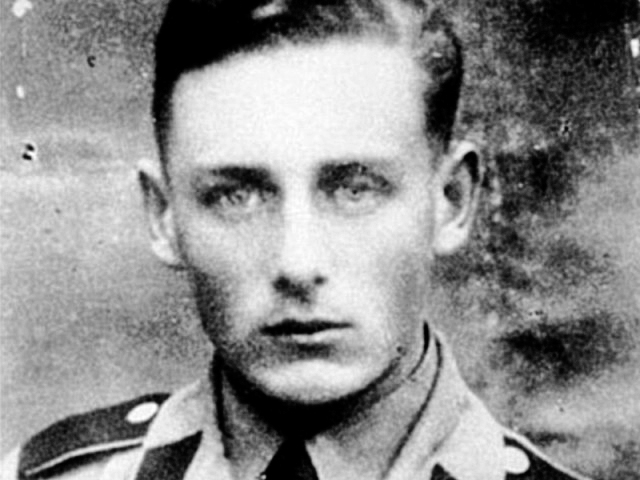For years, it was assumed—or feared—that Helmut Oberlander would die before he could be deported from Canada for alleged Nazi-era war crimes.
On Sept. 20, Oberlander obliged, ending arguably the most protracted and frustrating legal proceeding against any suspected war criminal on Canadian soil.
He was 97 when he died, surrounded by family, at his home in Waterloo, Ont. In his latter months, his lawyers had provided sheafs of medical evidence that he was well past the point of comprehending his own prosecution.
Oberlander’s case was marked by delay after delay. Each was met with bitterness and vexation by Holocaust survivors and Jewish organizations, who privately expressed concern that Oberlander might die in the comfort of his own bed in Canada before justice could be served.
“To Canada’s great shame, justice was never served in this case,” Michael Levitt, CEO of Friends of Simon Wiesenthal Centre, said in a Facebook post. “I’m thinking of all the victims murdered by Oberlander’s death squad. May THEIR memory forever be a blessing.”
Oberlander was admitted to Canada in 1954 and granted Canadian citizenship in 1960.
The RCMP opened a file on him in 1963. In 1995, they began efforts to denaturalize and deport him based on whether he had concealed his role as an interpreter for a Nazi death squad during the invasion of the Soviet Union when he entered Canada.
The federal cabinet revoked his citizenship in 2001, 2007, 2012 and 2017. On the first three occasions, the decisions were returned to the cabinet by the Federal Court of Appeal for further consideration after judicial reviews.
The Supreme Court of Canada refused to hear an appeal of the fourth and final revocation. The next step was Oberlander’s removal from Canada, which was up to the Immigration and Refugee Board (IRB).
Oberlander’s next move was to challenge the IRB’s jurisdiction. That was unsuccessful.
Earlier this month, the IRB held two days of hearings. His lawyers submitted a report from a doctor saying Oberlander was “near the end of his life.”
On Sept. 22, one of his lawyers, Ronald Poulton, notified the IRB of his client’s death, saying the matter is now “moot.”
All along, the government argued that Oberlander was admitted to Canada through false representation or by knowingly concealing his wartime service in the mobile Nazi death squad Einsatzkommando 10a, known as Ek10a, and thus never gained lawful entrance to this country.
In one ruling, the Federal Court said Oberlander was found to have “significantly misrepresented his wartime activities when he and his wife applied to enter Canada,” that the government had “concluded that (he) voluntarily made a knowing and significant contribution to the crimes and criminal purpose of this SS killing squad,” and that his defence of duress “was not engaged.”
An ethnic German born in the Soviet Union, Oberlander maintained that he was a low-level translator with Ek10a, which operated in Nazi-occupied Ukraine and slaughtered an estimated 20,000 civilians, mostly Jews.
He served with the unit from 1941 to 1943, claiming he had been conscripted at age 17 under duress and that he never took part in atrocities.
Oberlander was questioned in 1970 by West German officials. He said he didn’t witness any killings and wasn’t aware he was part of a death squad.
The victims of Ek10a “were denied the right of life, of family, of happiness, of children and grandchildren, all of which he celebrated in abundance,” remarked Bernie Farber, former CEO of Canadian Jewish Congress, which maintained a thick file on Oberlander. “Justice has been thwarted and now judgment will be carried out by a higher authority,” Farber said.
Oberlander’s “peaceful” death “is a stain on our national conscience,” Michael Mostyn, CEO of B’nai Brith Canada, said in a news release. “The fact is that this country slammed its doors on Jewish refugees fleeing the Nazis, then allowed some of their tormentors into Canada and failed to deport them.”
Concurred David Matas, B’nai Brith’s senior legal counsel: “This is a sorry record. The delays in these cases were unconscionable. The result was (that) justice for victims of the crimes addressed in these cases was denied.”
Oberlander’s death “ends the final chapter in his obscene abuse of Canada’s justice system,” noted Shimon Koffler Fogel, CEO of the Centre for Israel and Jewish Affairs.
Oberlander “manipulated Canada’s legal system to avoid accountability. He should have been deported decades ago to face justice in Germany,” Fogel said in a statement. He called for a thorough review of the immigration and refugee system as it pertains to suspected war criminals. “This travesty of justice should never be allowed to occur again in Canada.”
In early 2020, Russia said it had asked Canada to share files on Oberlander to help with an investigation into his possible involvement in the mass murder of children at an orphanage in the then-Soviet town of Yeysk in 1942.







